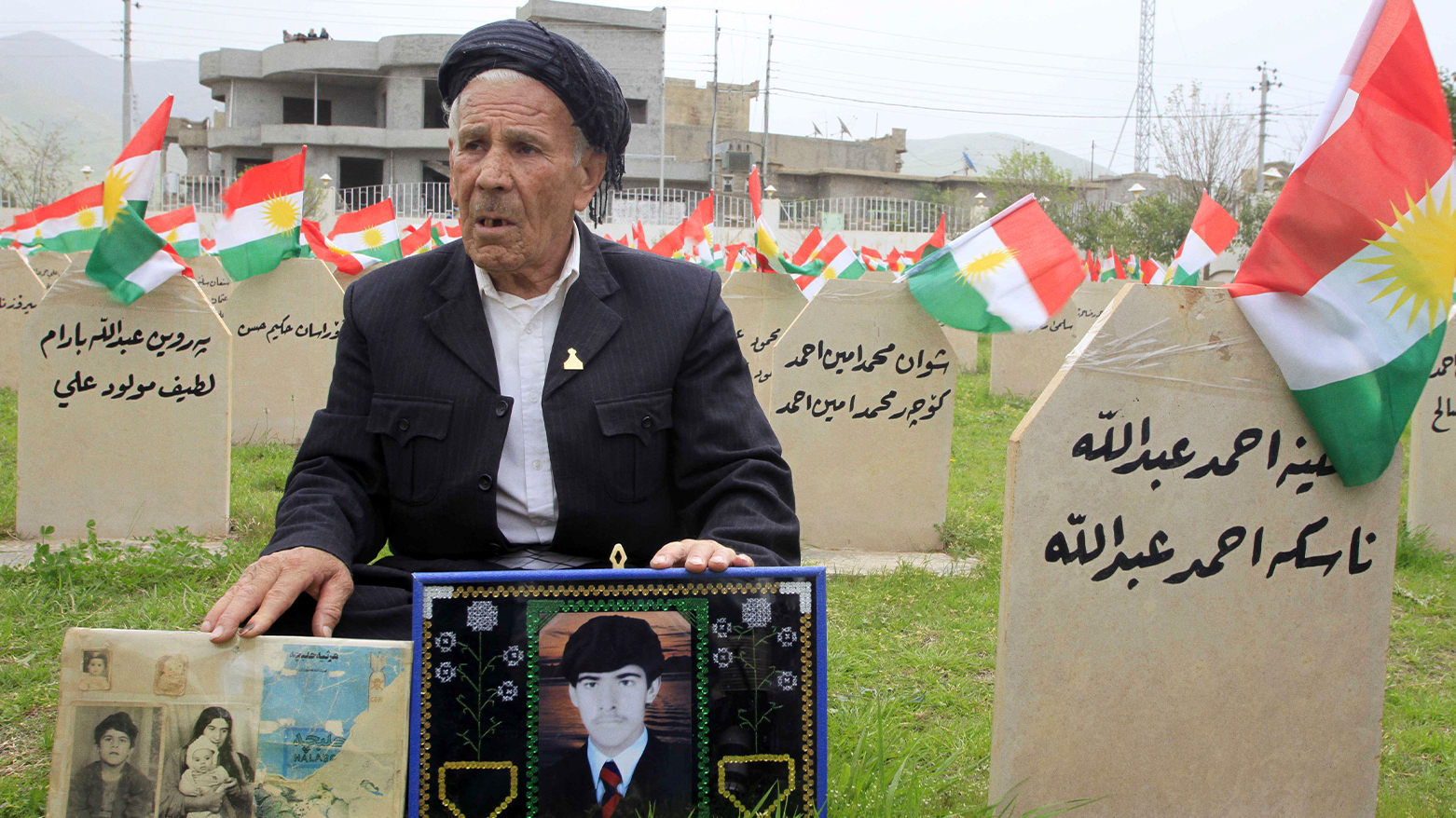36 years later, Halabja survivors await compensation amid Iraqi silence
The Iraqi Supreme Criminal Court in 2010 and both the Iraqi parliament and High Criminal Court in 2011 have declared it as genocide. However, successive Iraqi governments have failed to fulfill their obligations to the citizens of Halabja.

ERBIL (Kurdistan 24) – March 16th marks the solemn commemoration of the 36th anniversary of the devastating chemical attack on Halabja. Despite the Iraqi parliament's acknowledgment of the atrocity as genocide 13 years ago, the current Iraqi government, inheritor of the former regime, has refused to provide compensation to the victims.
On that fateful day in 1988, Iraqi warplanes unleashed chemical gas upon the heart of Halabja and its surroundings, claiming over 5,000 innocent lives and leaving over 10,000 others wounded, some of whom continue to endure unimaginable suffering.
Shockingly, 68% of the victims were children under 18 years old, and the aftermath saw the complete destruction of 198 out of 216 villages. Additionally, as citizens fled to Iran, 211 children from 74 families went missing.
Even now, more than three decades later, 900 survivors still grapple with health complications stemming from the chemical onslaught, with miscarriage rates soaring 14 times higher and instances of colon cancer and heart disease increasing exponentially among the population of Halabja.
Despite international condemnation, it was revealed in 2002 by the German newspaper “Die Tageszeitung” that over 158 international companies illicitly aided the Ba'ath regime in acquiring chemical and biological weapons. These companies spanned 11 countries, including Germany, the United States, France, and others.
Justice has been slow but not entirely absent. In 2005, the Dutch Supreme Court sentenced Dutch businessman Frans van Anraat to 15 years in prison for his role in supplying chemicals used in the attack. Furthermore, the arrest and subsequent execution of Ali Hassan Majid, known as Chemical Ali, in 2010 marked a significant milestone in holding perpetrators accountable.
Despite these steps, compensation for the victims remains elusive. The Iraqi Supreme Criminal Court declared the attack genocide in 2010, and both the Iraqi parliament and High Criminal Court echoed this sentiment in 2011. However, successive Iraqi governments have failed to fulfill their obligations to the citizens of Halabja.
The international community has also recognized the gravity of the Halabja massacre, with the Canadian Parliament acknowledging it as genocide in 2010, followed by the Swedish Parliament in 2012, the UK's House of Commons in 2013, and the Austrian Parliament in 2023. Yet, the survivors and families of the victims continue to await the justice and compensation they deserve.